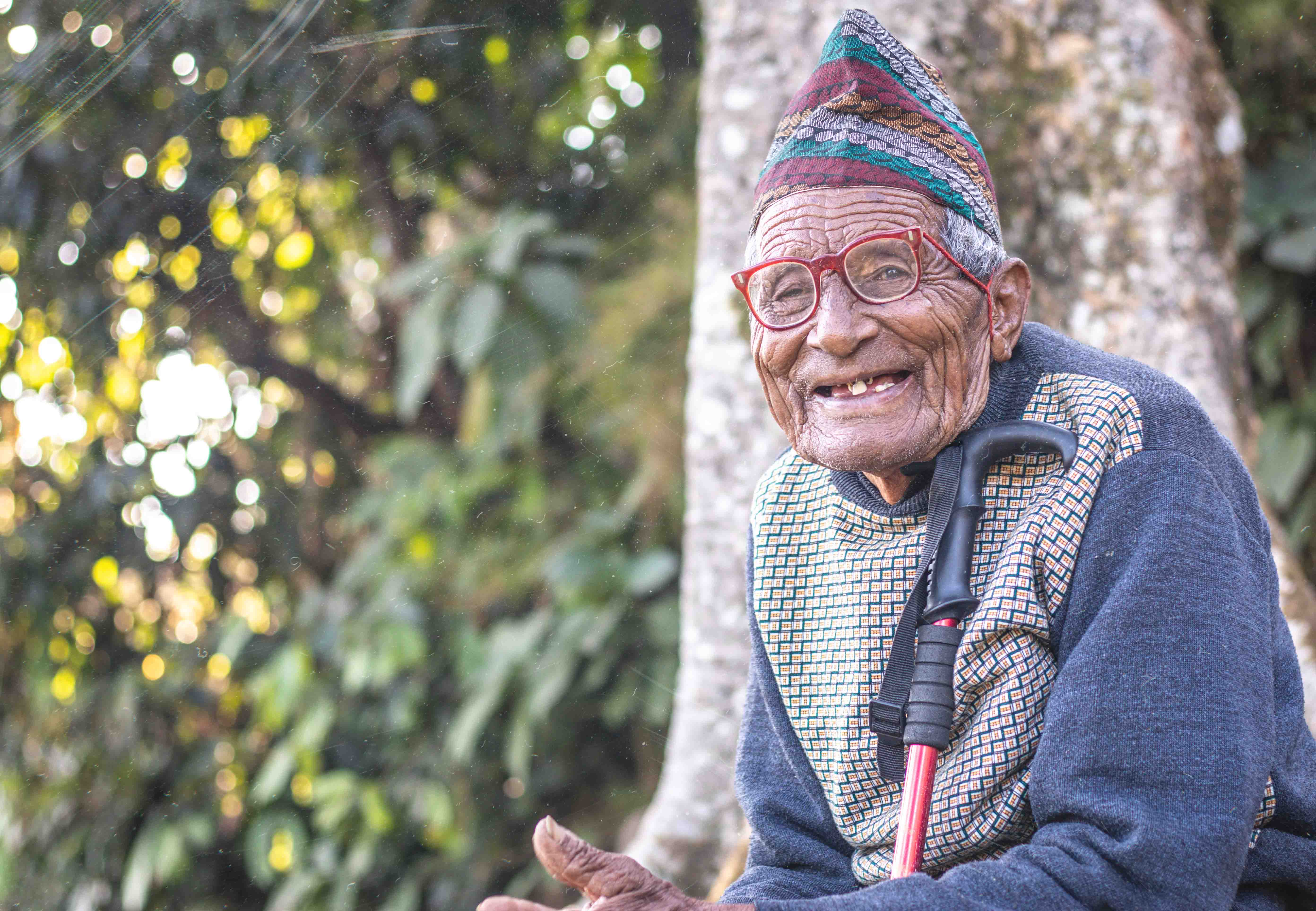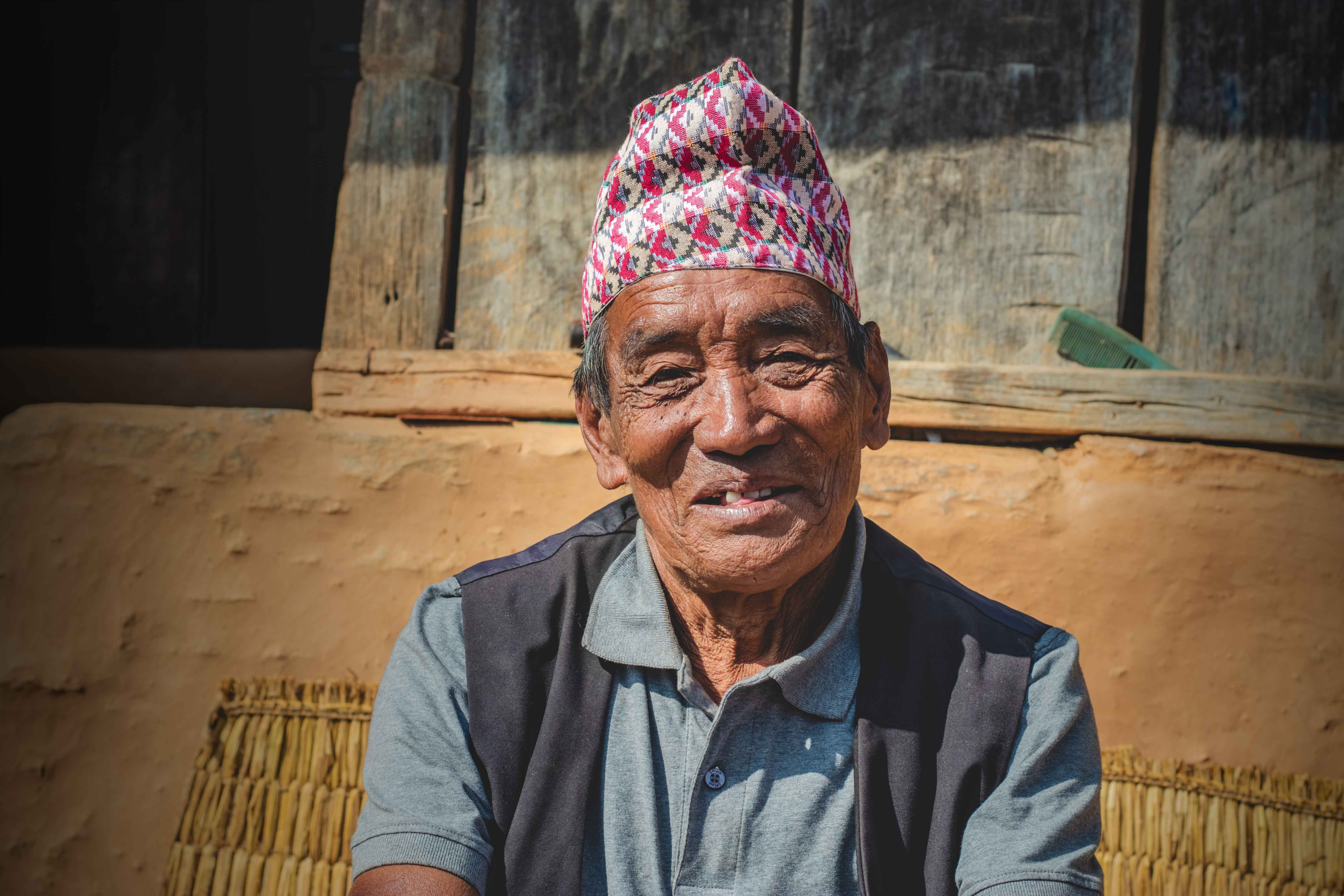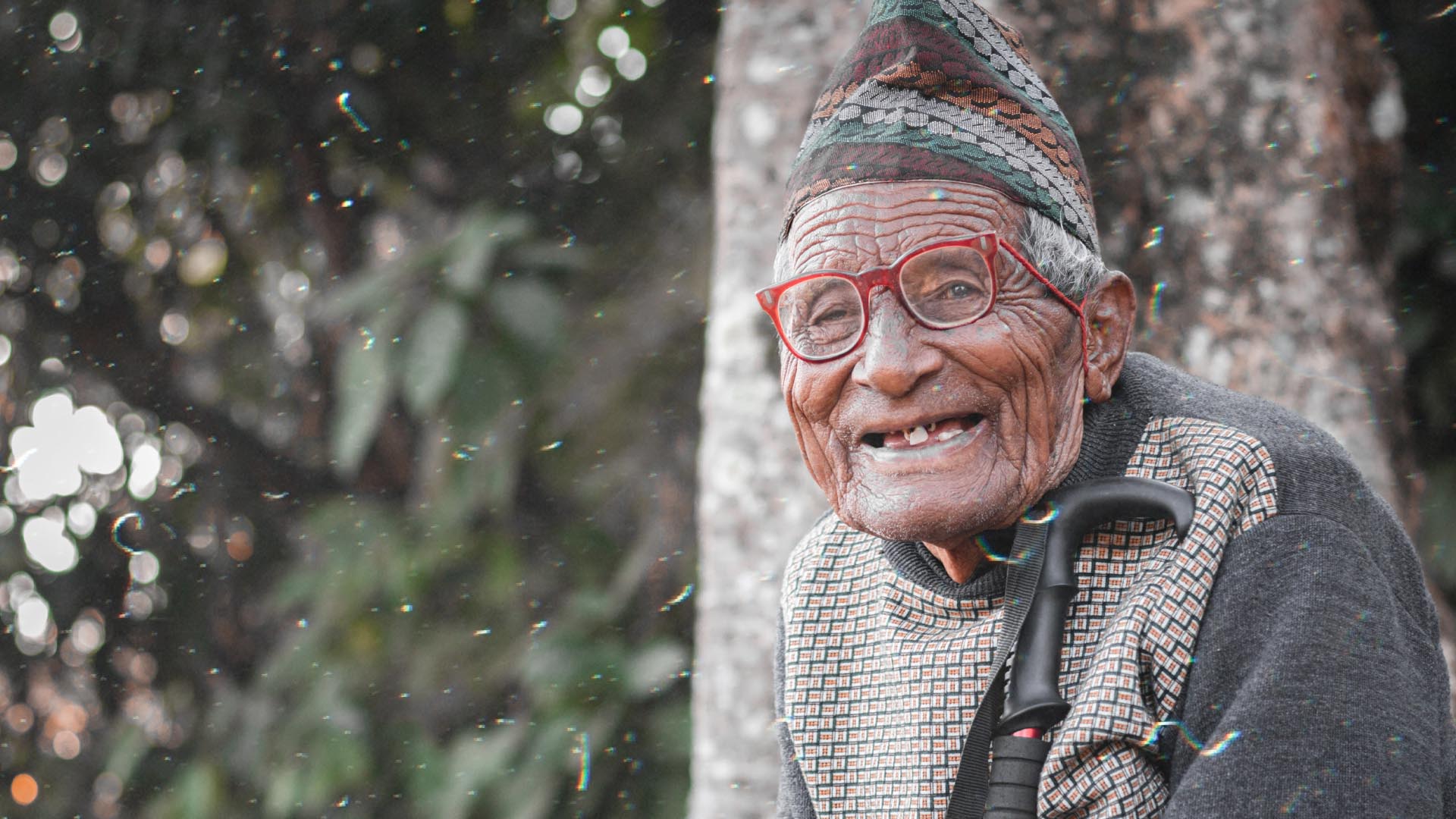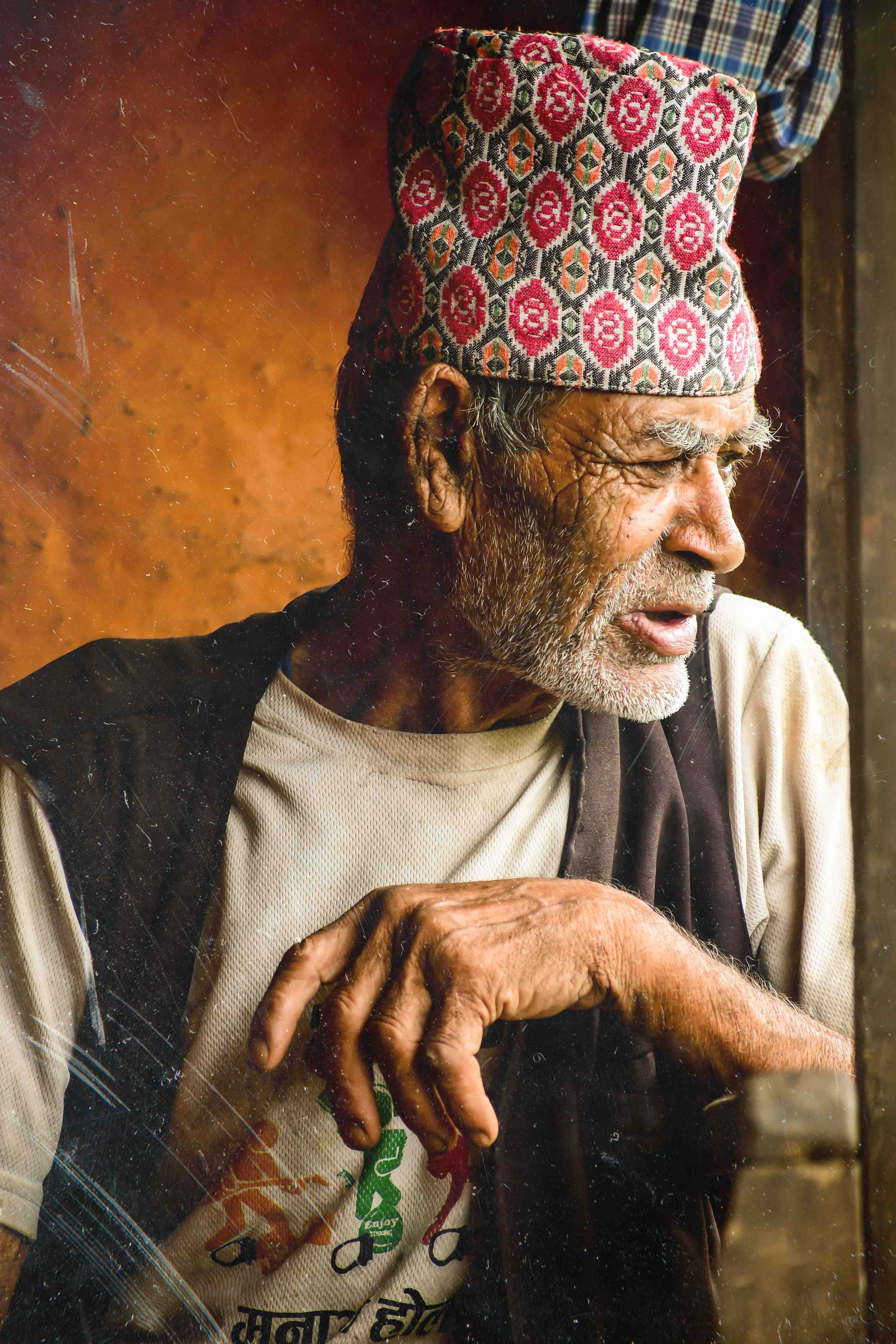About Katha Hijo Ko
“Stories from Yesterday” — preserving the voices of Nepal’s elders with dignity and heart.
Who We Are


My name is Sujan, and I started Katha Hijo Ko in 2014. I couldn’t fully continue then because I was working different jobs, but during COVID I was finally able to launch it officially. With about AUD $1,600 in savings and early support from Sukha e.V. (Germany), I formed a small volunteer team. At one point, we had 8 active members and others helping behind the scenes.
What We Do

Katha Hijo Ko — “Stories from Yesterday” — preserves the stories of elders in Nepal. We travel to remote villages and sit with elders (usually 75+) for heartfelt conversations about life, family, education, transport, and resilience. Alongside recording, we often provide basic food supplies (rice, salt, sugar, lentils) and sometimes small financial help — so they don’t have to worry about food for a while.
Support
We focus on dignity and care — listening deeply and offering practical support where possible.
Visual Storytelling
“Preserving history by visual stories from key witnesses.” We record conversations as living memory.
Mission
To preserve history through lived experiences — capturing how elders lived, what they endured, and how they adapted to change.
Vision
A living archive that helps future generations see and feel how life once was. For example, many families once walked days just to get salt — stories that sound like fairy tales today, but were everyday reality.
Values

Why Katha Hijo Ko Exists
Nepal has very little recorded visual history from the 20th century — cameras were rare and expensive. Visitors documented mountains and monuments, but the everyday lives of ordinary Nepalis were seldom recorded. Our goal is to preserve this unwritten history before it disappears.
Impact
So far, we have spoken with around 60 elders, spending full days in their homes — eating with them, listening deeply, and recording their experiences.
A milestone story: one elder recalled how, in his youth, the King of Nepal came to his village to recruit men into the army. Firsthand memories like this show how much can change in a single lifetime.
Cultural Preservation
Keeping languages, memories, and traditions alive for the next generations.
Future Value
It may feel small today, but tomorrow it will be a diamond archive for Nepal.
Human Connection
Trust over clicks: we build bonds, not viral content. When we leave, everyone feels it.
What Makes Us Unique
We are not chasing virality. We choose time and trust: spending entire days with elders so their stories flow naturally. We document, we support with essentials, and we honor the people behind the stories.
How You Can Support
Donate via our GoFundMe, Nominate an elder through our website, Share the stories, or Volunteer with outreach and documentation.
Funding Transparency
Funded by my personal savings (with support from my wife), early donations from Sukha e.V., and a GoFundMe campaign. We have personally spent over AUD $20,000 in two years. There is no personal profit — contributions go to travel, food packages, and elder support.
Future Goals
- Record and preserve at least 1,000 elder stories (we’re at ~60 so far).
- Publish a book of collected stories.
- Organize exhibitions & screenings in Nepal and abroad.
- Expand the digital archive at kathahijoko.com.
Credibility & Origin
Inspired by the stories my mother told us as children — and by the first recordings I made of my grandfather in 2014 (which were sadly lost). After his passing, I understood the urgency. We restarted during COVID, with early support from Sukha e.V. Stories are published at kathahijoko.com and YouTube. Around 60 interviews are recorded but not yet published because each edit takes days while I balance full-time work abroad — the files are safe.
A Humble Apology
With respect and gratitude, I want to sincerely apologize that many of our recorded interviews are not yet published online. We have safely documented the stories of approximately 60 elders, and every file is securely archived.
Each story takes time to edit (often 3–4 days per interview), and I am balancing this project alongside full-time work abroad. Please forgive the delay. The stories are not lost — they are saved and will be shared gradually.
Thank you for your patience and for believing in this project.